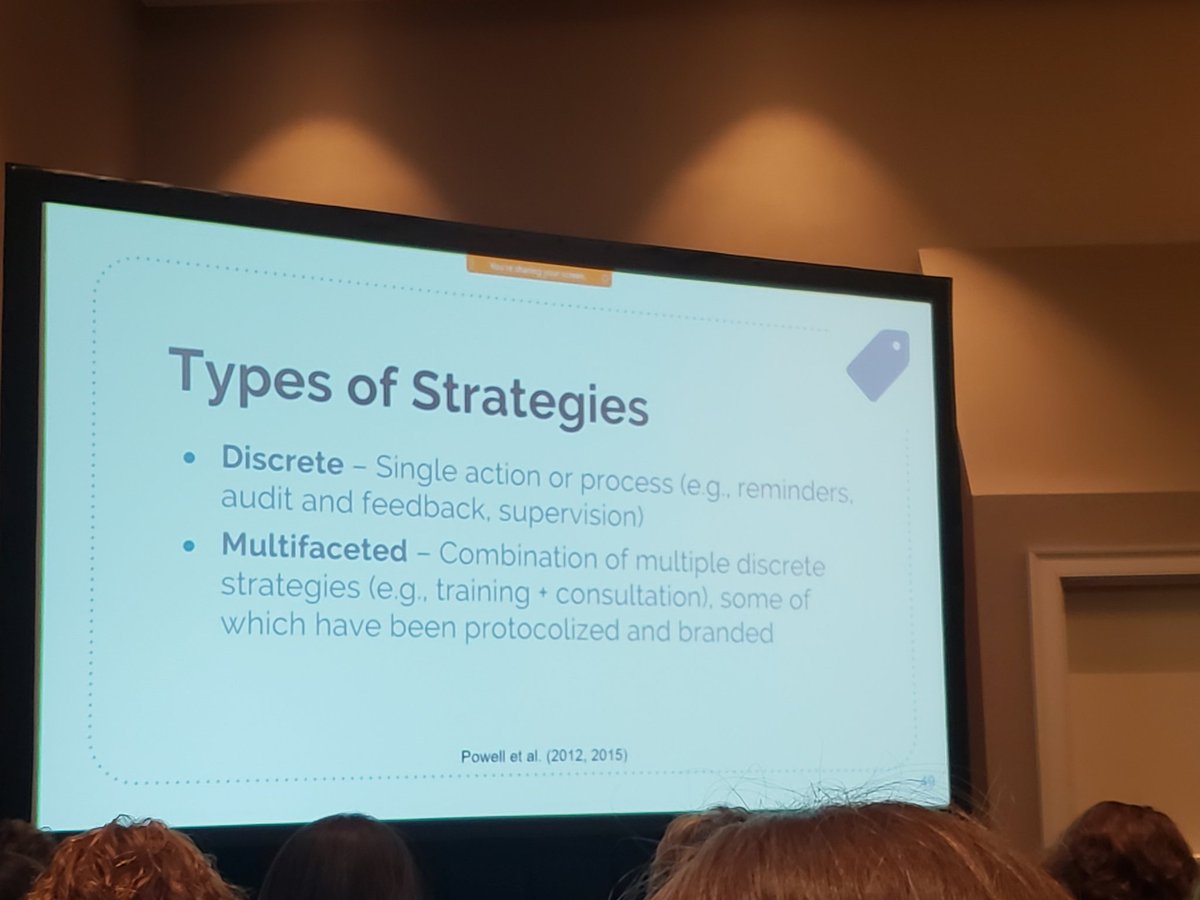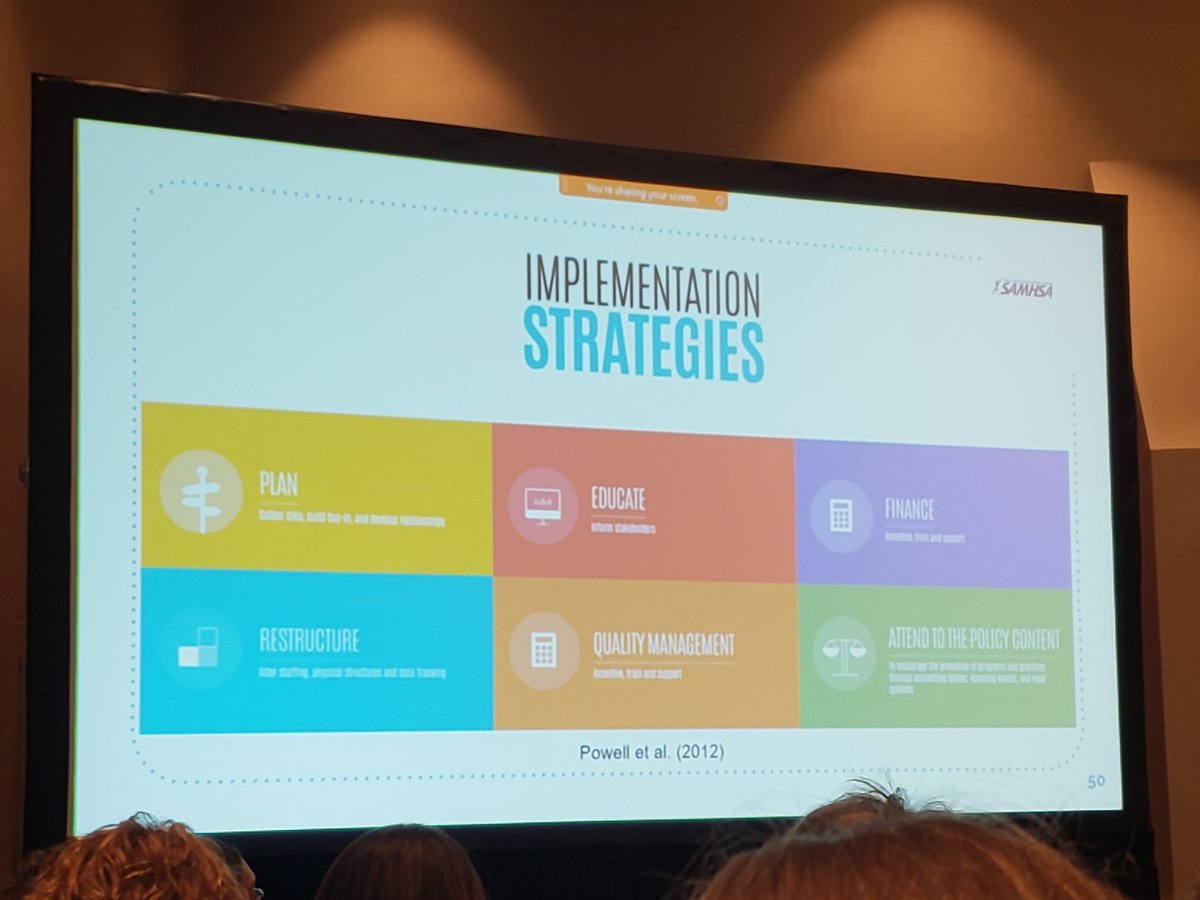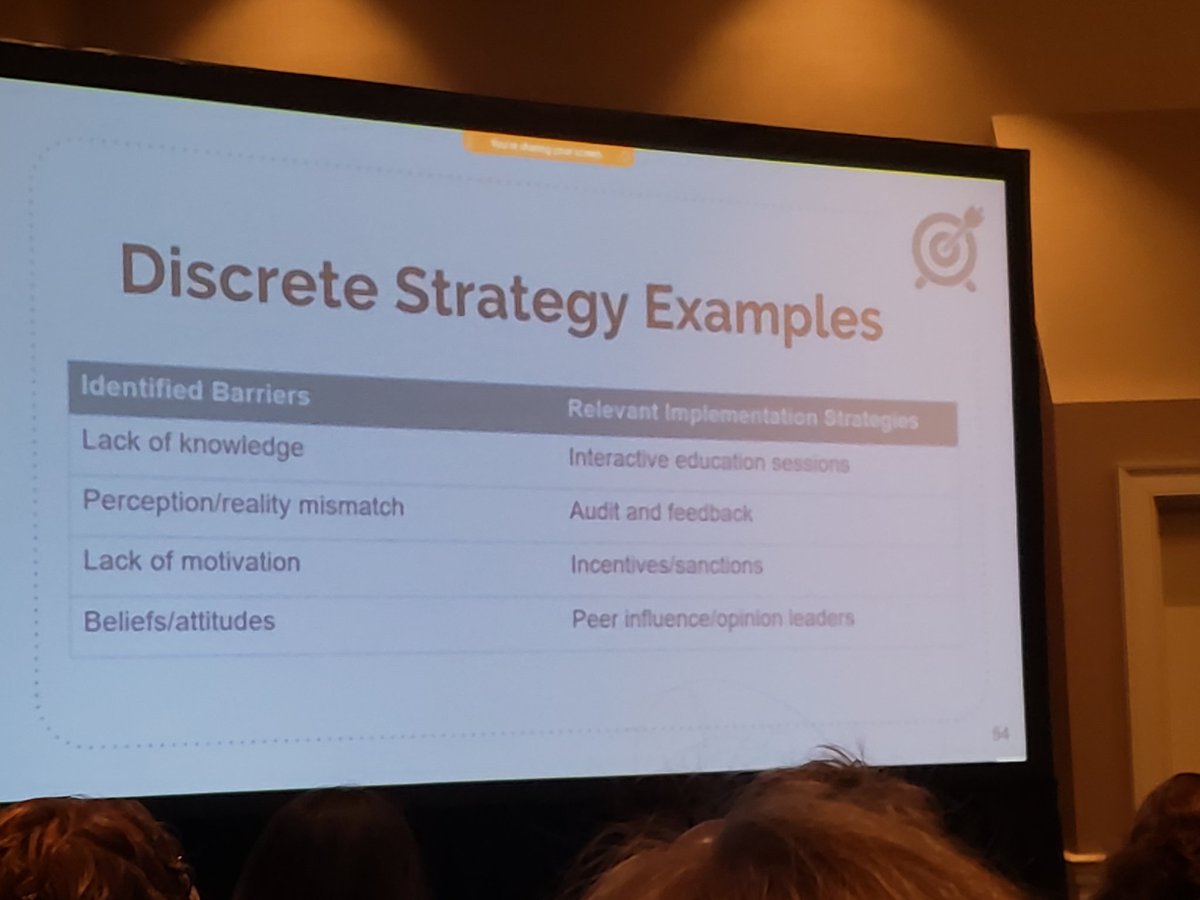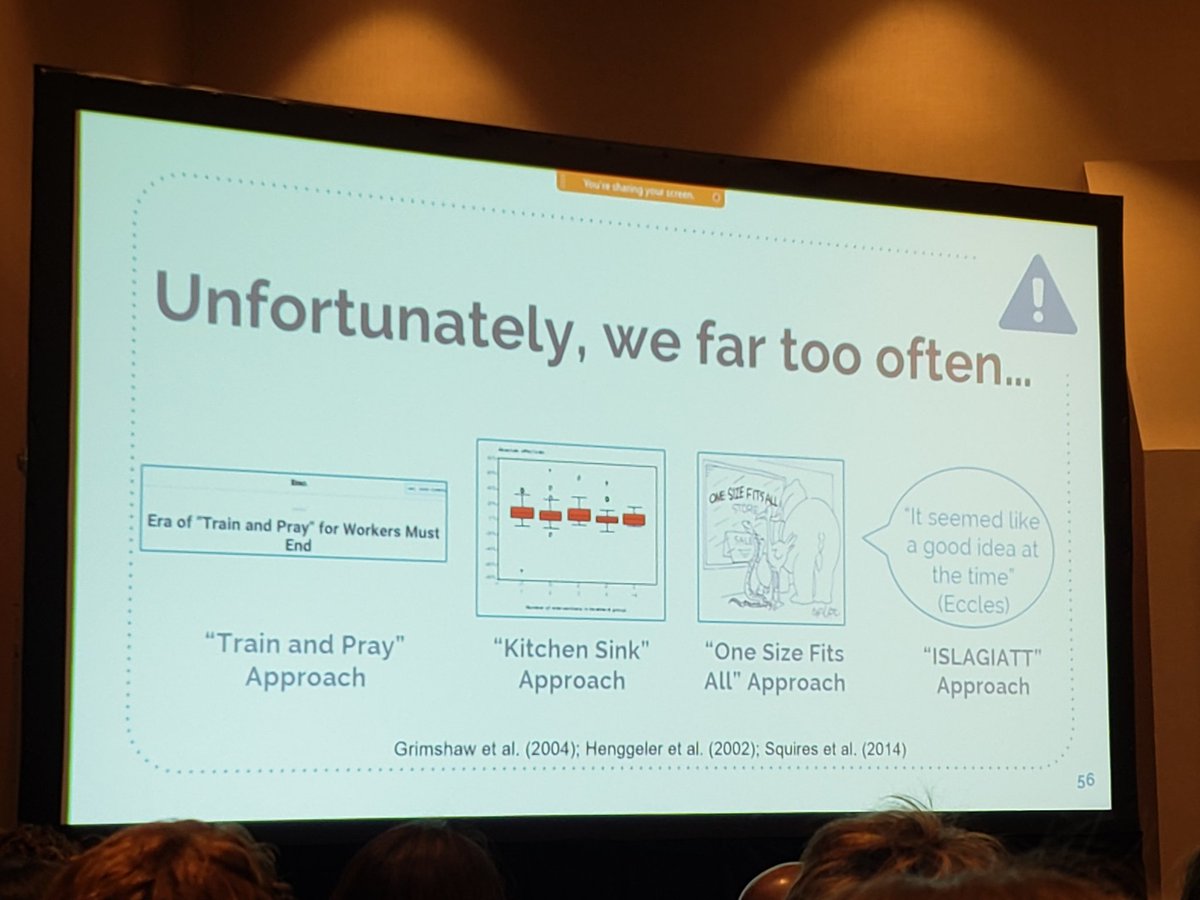Discover and read the best of Twitter Threads about #ImpSci
Most recents (21)
Given the interest with this tweet, I wanted to share some thoughts on how #ChatGPT also can be useful for brainstorming ideas (research, clinical, or anything really)... here are some examples, and a few caveats
Brainstorm project ideas with #ChatGPT by asking it for future directions in your field. This is pretty spot on for #impsci. You can drill down by asking follow up questions (tell me more about X).
H/T to @daniadamsPhD for this prompt
H/T to @daniadamsPhD for this prompt

Ask #ChatGPT for what could go wrong in a project as a premortum. This response is a great explanation for the null results in my diss (testing opinion leaders as a dissemination strategy), and would have been helpful to consider before starting the project. 

People keep asking me if I'm going to miss teaching. Yes, of course. AND. AND. 11 years of pouring every ounce of energy I have into teaching, being a better teacher, researching teaching, teaching other teachers...I'm tired AF. 1/
With 2, going on 3, years of pandemic teaching in the mix, I've never been more caring, empathetic, or flexible with my students before. I've never felt more like my teaching makes a difference. I am absolutely certain teaching is the way to make a difference in the world. 2/
I've no one to blame but myself for taking on a ton of service roles outside of my teaching. I have a lot I can contribute to curriculum committees, teaching conferences, and course design. I love working closely with undergrad RAs on research. 3/
Excellent presentation today by @CWalshBailey on de-implementation at the monthly #ImpSci @HarvardCatalyst working group!
"The practice of undoing something is not new!"
"The practice of undoing something is not new!"
Here's a great scoping review by @CWalshBailey et al. looking at de-implementation frameworks and models …plementationscience.biomedcentral.com/articles/10.11…
Here's another one by Nilsen et al. journals.sagepub.com/doi/full/10.11…
as promised, here is the tale of getting #MyFirstR01 & like a good psychologist i'll go over the content (what it's about) & mostly the process (how I did it) & give some professional development advice as i am wont to do. buckle up because i wrote too much & am dysregulated 1/n
it is a large 5 year project to update an adolescent HIV prevention program I worked on as a postdoc in 2012-2013. The updates will 1) reflect contemporary HIV prevention knowledge, bc TONS has changed, 2) focus on encouraging HIV testing/PrEP uptake (not just condoms!) 2/n
3) make it more 2022, technology-wise (it was only delivered using text msg), 4) make it more gender-inclusive (previously was GBQ cis boys; I plan to expand it to trans & gender diverse teens who may benefit from HIV testing/PrEP) - read summary here bit.ly/36bqGKi 3/n
Overview thread of the Delphi technique, its methods and rigor, ethical concerns, and some darn good examples - I've been trying to learn and wanted to share. Please add resources as you wish 🧵 #AcademicTwitter #ImpSci #PhDChat
Delphi is a method of developing consensus on a topic or forecast a future pattern from experts on those topics // Multiple rounds of voting anonymously, feedback groups' response to all. Link to @RANDCorporation that developed it: rand.org/topics/delphi-…
Used in research and communities with controversy, some say it erroneously guides people to "group think" - some of this is discussed by Keeney et al: "consensus from a Delphi process does not mean that the correct answer has been found." pubmed.ncbi.nlm.nih.gov/11223060/
Over 300,000 children are diagnosed with cancer every year. Cancer is the leading cause of death in children around the world, but what's the most important factor that determines childhood cancer survival?
#ChildhoodCancer # #ph260720 via @WHO
#ChildhoodCancer # #ph260720 via @WHO

Despite the influence of cancer genetics, disease stage, or age of the child, the most important factor that determines childhood cancer survival is where they are born.
#ChildhoodCancer #ph260720
via sciencedirect.com/science/articl…
#ChildhoodCancer #ph260720
via sciencedirect.com/science/articl…
Over 80% of children with cancer live in low- and middle-income countries where 4 out of 5 children die from their disease, versus high income countries where 4 out of 5 children survive. This difference is known as the pediatric cancer survival gap.#ph260720 #ChildhoodCancer 

Welcome to #ImplementationThursdays!!! I'd like to dedicate this week's thread to parents/caregivers and their important role in any implementation effort. #ImpSci #DevLangDis #Dyslexia #ELAchat #SLPeeps
Lately, I've been reading a lot about parents/caregivers' perspectives of their children's communication disorders and their experiences around them.
For example, De Lopez, @Renagalway, et al. asked parents how they made sense of their children's speech and language disorders and how they described them across 10 countries
pubs.asha.org/doi/10.1044/20…
pubs.asha.org/doi/10.1044/20…
Welcome to #ImplementationThursdays!!! Last week, we discussed a bit about what #ImpSci is and what it can do to improve uptake of #EBP. This week, I want to focus on implementation strategies - things that you do to change something in your context and facilitate implementation.
Usually, when you do #ImpSci work, you begin by examining what in your target context influences implementation and whether it is acting as a barrier or a facilitator. Identifying barriers to implementation is important because these are the things that you want to change.
And the way to change them, eliminate them, is by using implementation strategies: strategies that address barriers and enhance the adoption of a particular program. Here is a nice summary by @ImpSciUW
impsciuw.org/implementation…
impsciuw.org/implementation…
Welcome to #ImplementationThursdays!!! This week, instead of reviewing an article, I decided to introduce implementation science and compile useful resources for anyone who might be interested. Here we go! #ELAchat #ImpSci #DevLangDis #Dyslexia
Let's start with the problem. The problem is that high-quality, evidence-based programs do not always end up in routine practice like schools. For example, a review showed that it takes on average 17 years for only 14% of research to be integrated into practice.
17 YEARS AND ONLY 14%! This means that programs that we know work are not used in routine practice and do not benefit those who need them. This means that our children with #DevLangDis and #Dyslexia for example do not receive high-quality services.
I've seen a lot on #AcademicTwitter about people struggling to read journal articles that they've flagged. Like many others, I need to stay up to date on the latest literature. Here's are 10 tips about how I was able to "read" 500+ articles in the past 3 yrs.
A 🧵
1/10
A 🧵
1/10
This process takes me between 2 and 10 minutes.
1⃣I email myself articles that sound interesting or relevant.
2⃣I “snooze“ the article so that one article a day shows up in my inbox at 6 AM.
2/10
1⃣I email myself articles that sound interesting or relevant.
2⃣I “snooze“ the article so that one article a day shows up in my inbox at 6 AM.
2/10
3⃣Reading the article is the first thing I do in the morning. If I don’t read it in the first 30 minutes of my day, I know I won’t get to it.
4⃣I skim through the abstract (30 seconds)
3/10
4⃣I skim through the abstract (30 seconds)
3/10
Musings on exercise from an #impsci psychologist. Thread. I was NOT an athlete growing up. I was always picked last for sports. I hated running around the gym in circles (always got a side stitch). I never scored a goal (despite playing soccer for years as a forward).
My identity was not "athletic." Fast forward to my clinical psychology PhD (grueling). I read about the protective benefits of exercise and started running to train for a 10-miler (#BSR proud) in 2006. I started out running 1 min, walking 9 min in 10 min increments.
Took me 5 years to find my flow. Don't give up. Did you know exercise protects your mental health? What's the secret sauce? For me: (1) community (people in class and a kick ass consistent instructor), (2) music, (3) goals, (4) and how I feel after
#impsci friends: I am compiling “intro to D&I” papers in diff topics. Can you help me? Samples below
With so much happening in the world right now, it’s been hard to keep up with all the high-value #impsci published in 2020 – but I’m trying!
Here are five articles that I’m excited to incorporate in my #implementationscience teaching and research:
Here are five articles that I’m excited to incorporate in my #implementationscience teaching and research:
Already using this article/slide to introduce #impsci in classes and workshops. Really helpful when teaching or speaking to intervention scientists, epidemiologists, and clinicians who find #impsci vocab unfamiliar and (frankly) off-putting. doi.org/10.1186/s43058…
Equity will be a theme running through my #impsci course this fall. So much to chew on in this article. Here’s a nugget: implementation is all about fit. This idea precedes #impsci as a field, but its relevance for improving equity resonates loudly today. doi.org/10.1186/s12913…
#impsci can inform how we support people through this difficult period of extreme change. We asked people about their barriers to #PhysicalDistancing and grouped data from 387 respondents. Here are the 12 themes we found:
Please RT for gov, health experts, and researchers!
1/18
Please RT for gov, health experts, and researchers!
1/18

Data is open access – you can get the raw data here: thecenterforimplementation.com/covid19
After considering these themes, we want to open up the conversation. What are new barriers that are coming out now? What have you noticed? 2/18
After considering these themes, we want to open up the conversation. What are new barriers that are coming out now? What have you noticed? 2/18
Note: We wanted to hear participants' perspectives on why they chose to or chose not to practice physical distancing. This work was not about judging anyone’s choices or behavior. The goal was to better understand everyone’s perspective. 3/18
To provide some clarity about #COVID19 in #Sweden 🇸🇪, here's our insight into the public health measures, the current situation and considerations for the way forward: institut-fuer-globale-gesundheit.de/?p=2471 @BerlinIgg. Life in Sweden is not continuing as usual during the pandemic. 1/18 

Sweden’s strategy may be different from other countries, as it aims not only at reducing #COVID19 transmission but also at reaching other important health goals. The strategy combines regulations and advice with a strong emphasis on individuals’ responsibility for action. 🌍 2/18
Sweden is implementing #COVID19-related interventions with the same aspirations as other countries: reduce transmission and #FlattenTheCurve. 3/18 

1/In light of #COVID19, organizational readiness seems more important than ever. So today in my 3 hr #impsci course, we're going deep into lit on importance of #organizational context, readiness, resources and leadership. We'll use one of my faves as case study (thanks @bjweiner) 
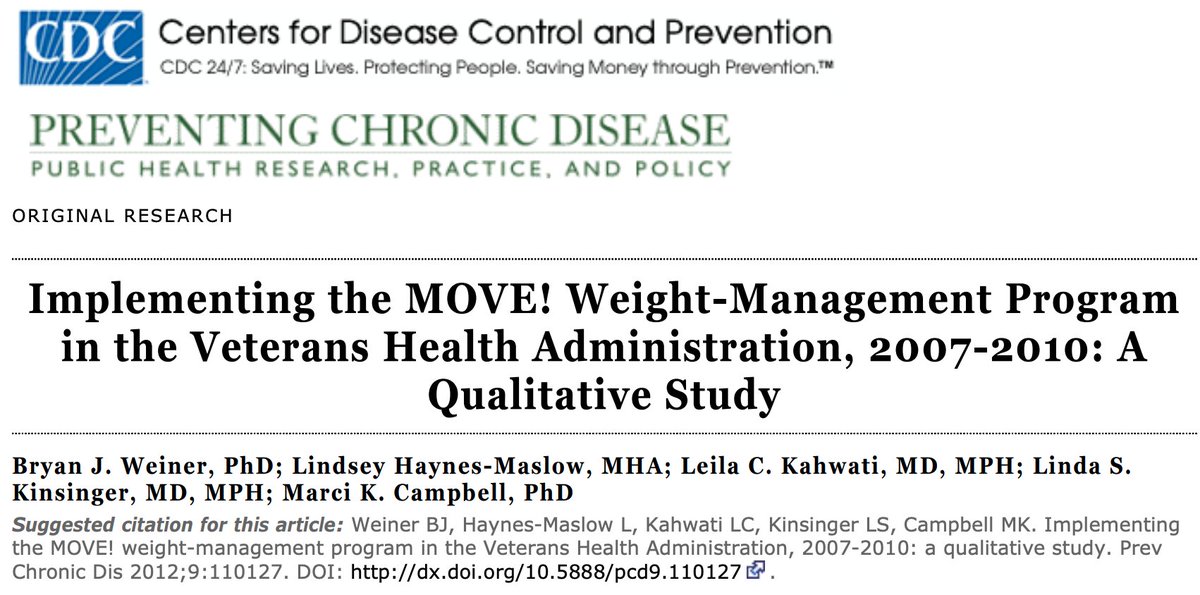
2/ One thing I love about this piece of that the appendix goes in depth into about how they defined #organizational context, all the key stakeholders they interviewed, plus the qualitative questions they used for each organizational construct in their comparative case analysis. 
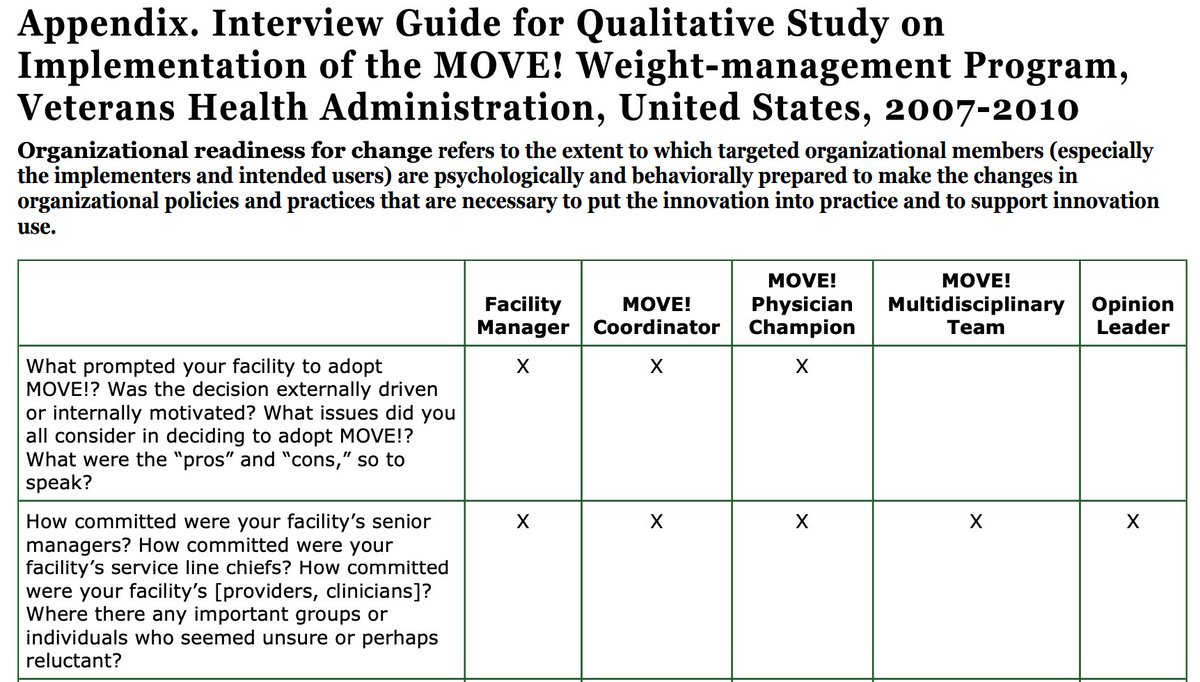
3/ 2nd half of class we'll go into #stakeholder engagement, #CBPR, participatory processes- areas that we know are critical for #healthequity and to ensure our science impacts policy & reaches key groups who would benefit from it most. Love this piece as a #impsci CBPR case study 
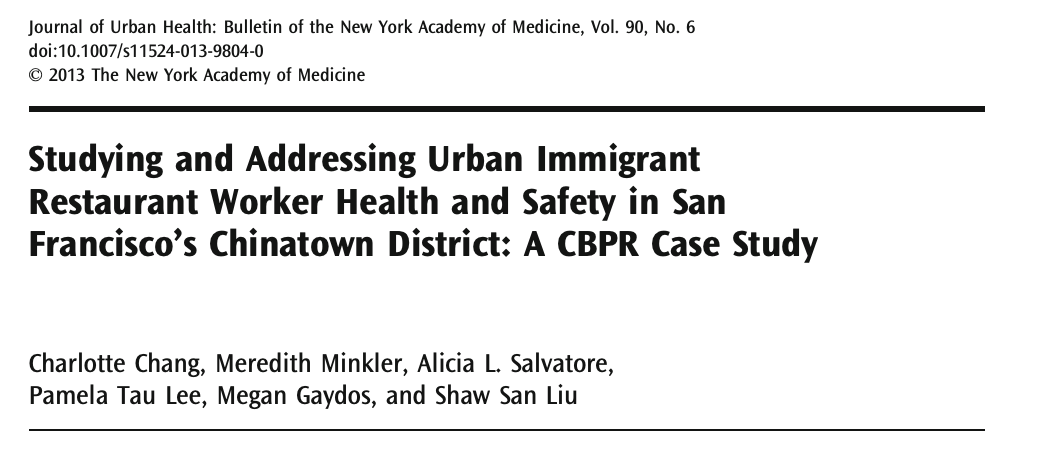
Who is writing #impsci grant? The world is filled with amazing resources, compiling some here for you (and for the future me). Please join and share others that I may have missed!
1. Starting with our D&I toolkits: sites.wustl.edu/wudandi/di-too… and the papers from our teams on how to write grants:
2. ten ingredients: …plementationscience.biomedcentral.com/articles/10.11…
3. magic elixir: ascpt.onlinelibrary.wiley.com/doi/full/10.11…
4. eval of #impsci proposals: …plementationscience.biomedcentral.com/articles/10.11…
2. ten ingredients: …plementationscience.biomedcentral.com/articles/10.11…
3. magic elixir: ascpt.onlinelibrary.wiley.com/doi/full/10.11…
4. eval of #impsci proposals: …plementationscience.biomedcentral.com/articles/10.11…
5. the 10 tips is now a cool video + other resources: ucdenver.edu/academics/coll…
@TELLlab @tiffanyphogan @PamelaSnow2 @NathanielRSwain @botting_nikki @Suze_Freogirl @SusanEbbels @lfinestack @hstorkel @mcgregor_karla @larchiba6 @ASHAWeb @Nat_Douglas @AcademyHealth Of course! Will do on here this week!
@TELLlab @tiffanyphogan @PamelaSnow2 @NathanielRSwain @botting_nikki @Suze_Freogirl @SusanEbbels @lfinestack @hstorkel @mcgregor_karla @larchiba6 @ASHAWeb @Nat_Douglas @AcademyHealth Ok. I am going to share my list of top 10 must reads for intro to implementation science. First up - an accessible introduction from @MarkSBauerMD
bmcpsychology.biomedcentral.com/articles/10.11…
bmcpsychology.biomedcentral.com/articles/10.11…
@TELLlab @tiffanyphogan @PamelaSnow2 @NathanielRSwain @botting_nikki @Suze_Freogirl @SusanEbbels @lfinestack @hstorkel @mcgregor_karla @larchiba6 @ASHAWeb @Nat_Douglas @AcademyHealth @MarkSBauerMD Next - 2 pieces on theories, models, and frameworks in #impsci -
…plementationscience.biomedcentral.com/articles/10.11…
sciencedirect.com/science/articl…
…plementationscience.biomedcentral.com/articles/10.11…
sciencedirect.com/science/articl…
Excited today to hear from @APA @ArthurCEvans at the #SIRC2019 conference. One thing I love about #ImpSci is how interdisciplinary it is!
@APA @ArthurCEvans You: Are you going to Live Tweet it?
Me, poised eagerly at my laptop: Do you even know me?
Me, poised eagerly at my laptop: Do you even know me?
@APA @ArthurCEvans Imagine "John" - a difficult, chronic hospital patient. But interventions focused on John's goals and how providers could move him toward those goals got John to a place where he could be discharged. This is what happens when we use Evidence-Based Practices (EBPs)
Excited to have our work examining tradeoffs of alternative approaches to hematuria evaluation out in @JAMAInternalMed today. Sharing here origin story, highlights from the paper and related thoughts (THREAD)
1/n
jamanetwork.com/journals/jamai…
1/n
jamanetwork.com/journals/jamai…
Work with @pennstate2003 et al got us thinking about tradeoffs associated with differing recs in this context, in particular harms associated with radiation from CT & wide real-world dose variation (enter coauthor @UCRadSafety)
2/n
annals.org/aim/fullarticl…
2/n
annals.org/aim/fullarticl…
Concerns re low yield of CT & radiation harms ncbi.nlm.nih.gov/pmc/articles/P… motivated coauthor Ron Loo et al to study their outcomes ncbi.nlm.nih.gov/pubmed/23312369 & ultimately implement new risk-stratified KP guideline
3/n
3/n
Packed room at 8:45am for the Pre-Conference Workshop #DIScience18 
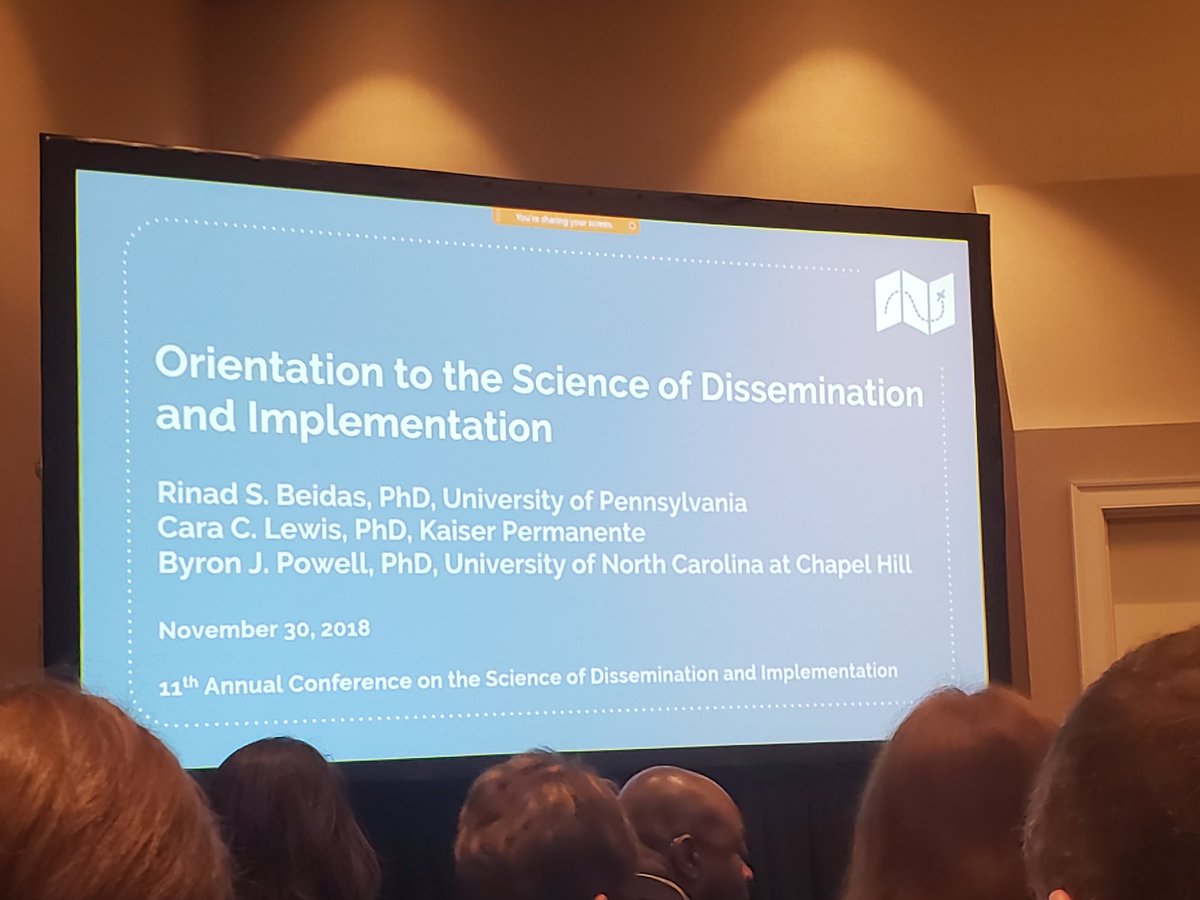
Core differences between #dissemination and #implementation research, the translational pipeline, and the breakdown of theories/frameworks. Also love the "plain language" slide: implementation outcomes are HOW WELL you DO the THING (intervention/practice/innovation) #DIScience18 



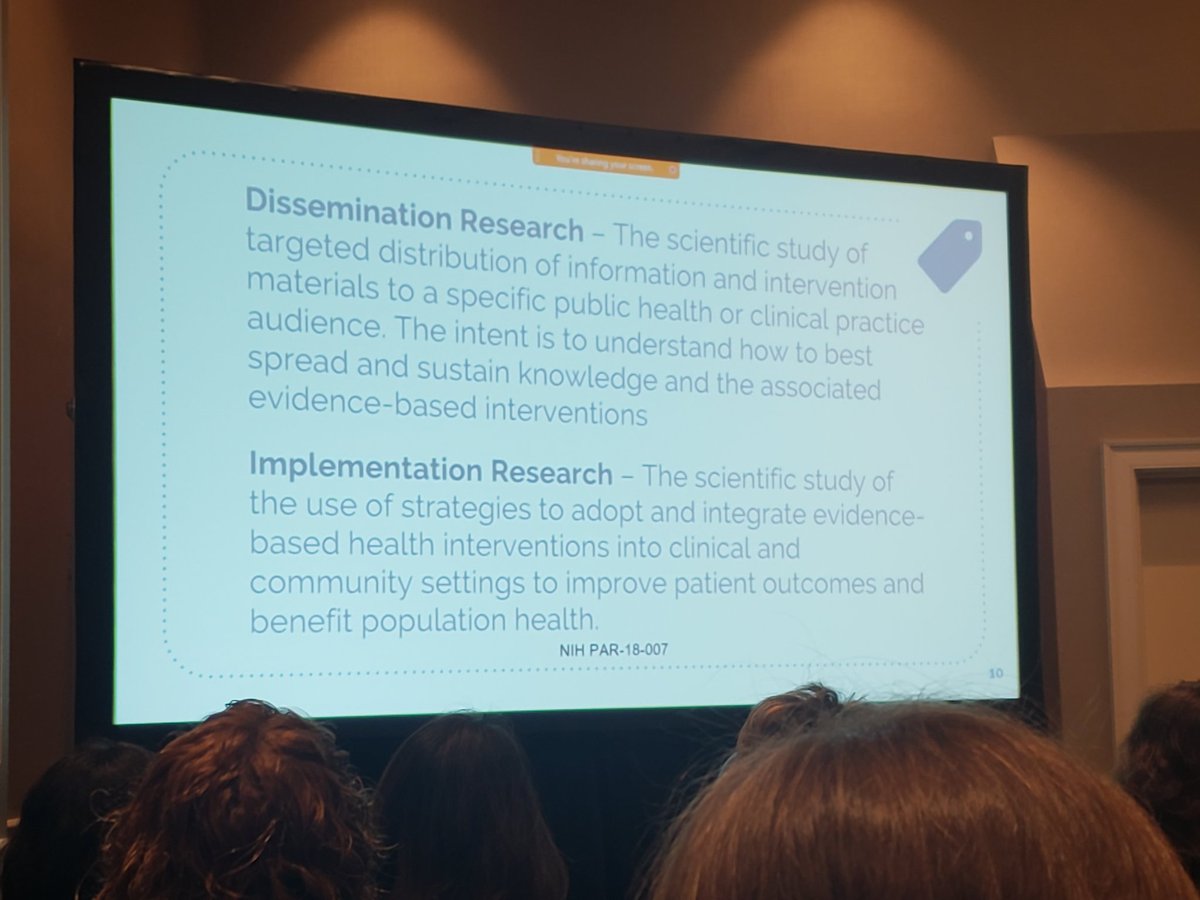
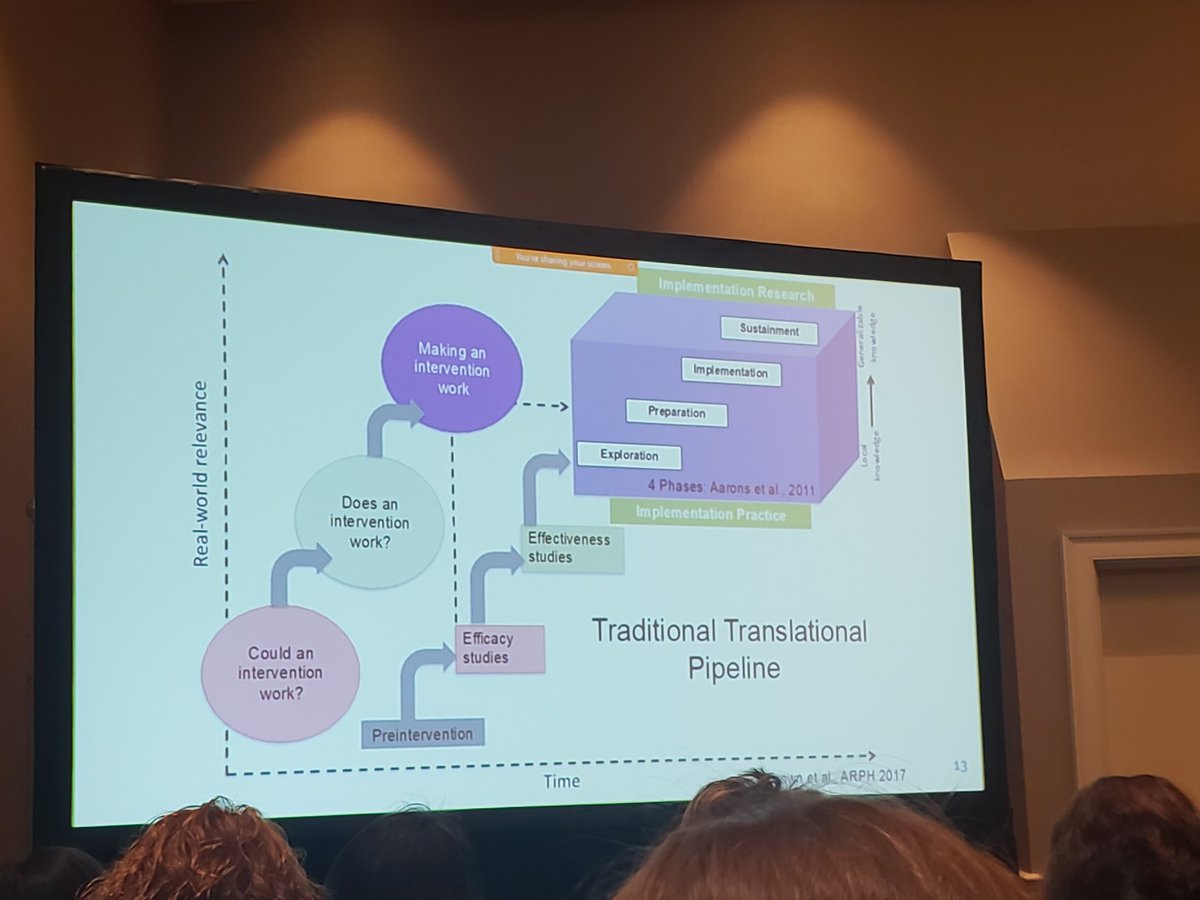
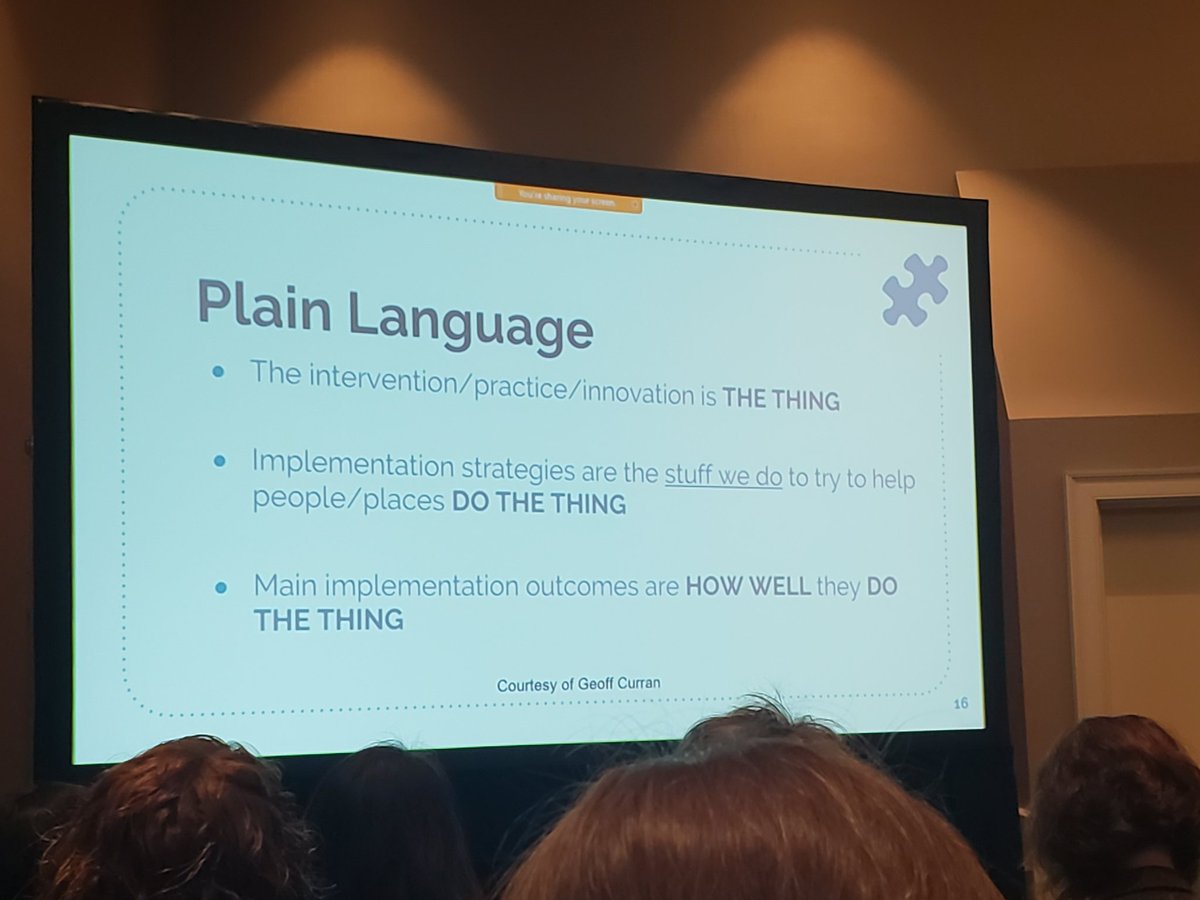
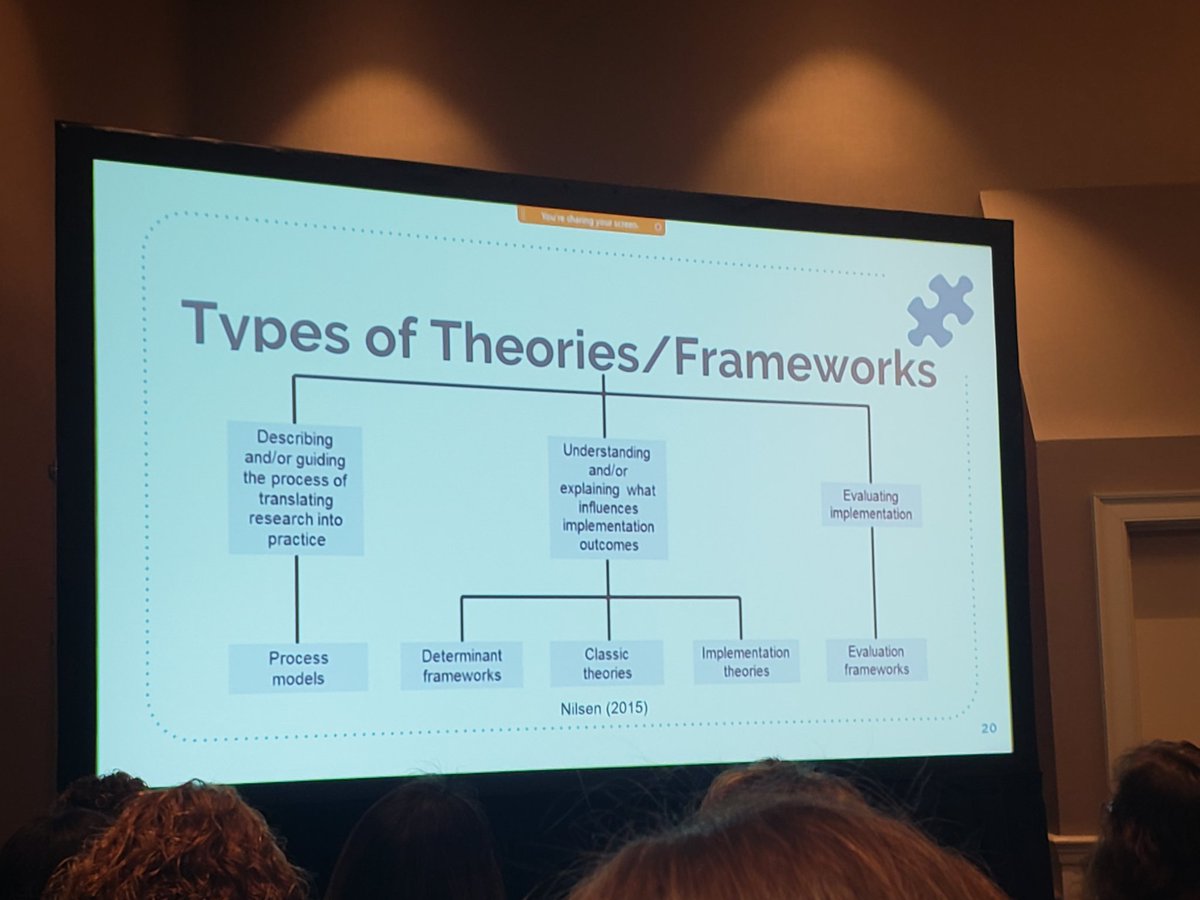
There are A LOT of implementation strategies (discrete and multifaceted - see work by @byron_powell), but strategy selection must appropriately match to the implementation barrier, or else implementation looks like...(see last image) #impsci #DIScience18 



